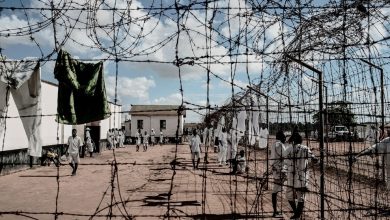Ponderings on arrests
There was a time, during a Tonse Alliance campaign rally at Njamba Freedom Park in Blantyre when Speaker of the National Assembly Catherine Gotani-Hara said something that was striking. In the run up to the Fresh Presidential elections, Gotani-Hara was speaking as deputy secretary general for the Malawi Congress Party (MCP).
In her words, she implored that the government in waiting should try as much as possible to make lives better for the Malawian on the street. Of particular interest for her was an age-old locution: “Ndalama wanu, dziko wathu.”
In her terms, time was ripe the tide changed.
Primarily, you would think these are arguments on race or creed. It is apt today, to regurgitate her words and the context in which she said.
This comes to mind as some 60 or so Indians were arrested at the Salima Sugar Factory for having no work permits. Gotani-Hara’s words come back to mind as some unit of other Asians were nabbed for having no proper papers, including passports. To question how they found themselves in the Motherland without papers and documents may be food for another day, but then, how did we allow them to be where they are?
Again, this is not a matter of racism. It is a question of how low we have sunk to allow foreigners taking up jobs as shelf cleaners, when many more Malawians are sinking in the abyss of unemployment.
They are called Malawians of Indian origin. That is a cryptic terminology that has led them to abuse us for so long. Last time I checked, Malawi does not accept dual citizenship. There is no such thing as an Indian of Malawian origin!
All one can say from the foregoing is there have been so many cases involving ‘Malawians of Indian origin’ that border on abuse. There has been a silent but cold coup from these our dear friends.
Take this: Who supplied food rations to the Malawi Police Service (MPS) using bloated figures? Who supplied uniforms under obscure circumstances to the Immigration Department? Who was the co-accused in the infamous maize deals christened maizegate?
For that matter, we now hear some K5 billion worth of cement was bought from Zambia and Zimbabwe using the Customs Procedure and Excise Tariff Code 418, which allows the President to import goods for personal use duty free. Now, former president Peter Mutharika says he doesn’t know anything about this deal that led to the arrest of his security aide Norman Chisale and another suspected accomplice Chunara, a Malawian of Indian origin.
Aside the fact that a Malawian of Indian origin is involved in the suspect purchase of cement. But then, how can a whole former president claim he knew nothing about the deal, if anything? It is a foregone fact that the president had under him a lot of security and legal instruments that may have shaken him up from the deep slumber that left Malawians on the street with no medicine in the hospitals, no proper infrastructure to learn in. Was he not alerted? Why did those alerts reach him?
Ignorance, under the law, is no excuse. One can take it that the former president smelt a rat long time ago that others may have been using his name for their personal aggrandisement. Why was he silent?
It is very clear that many were abusing the Peter Mutharika signature to import Indians and some Chinese who are now answering charges ranging from theft, fraud, illegal entry and a host of other crimes. It is a cartel that must die.
Following the capitulation of Mutharika’s Democratic Progressive Party (DPP) at the June fresh presidential polls, a lot of arrests have been made under president Lazarus Chakwera’s rule. In his words, Chakwera says this is no time to let loose looters, they must be brought to book.
Former Blantyre mayor Noel Chalamanda said the other day with the many cases, there is need for a special court to speed up these cases. In his words, this model has been used in other countries to try cases involving corruption and fraud in foreign regimes. Speedy trials are most important in these cases.
Weighing up on this fact has been the National Anti-corruption Alliance which has also proposed speedy trial for those arrested and accused of plundering the national coffers during the fallen rule.
Onus is on Chakwera, who recently alluded to the fact that speedy trials would be determined under his Justice and Constitutional Affairs Minister Titus Mvalo, especially on those who seek redress by bringing to front their involvement in the loot. Restitution, redress and retribution are at the core of corruption cases.
Malawians are not keen on who Chakwera and his government arrest next. They are keen to learn how much is brought back to the national coffer!
Since November 2015, the courts have been hearing a case in which former budget director Paul Mphwiyo is suspected of having had a hand in the scandal where K24 billion was siphoned from government coffers between June and September 2013. It is only now that director of public prosecutions Mary Kachale tells us that case is near conclusion, following Mphwiyo’s re-examination that takes place in the near future.
Now, there were atleast 36 public officers owning 122 dubious companies to ‘pilfer’ from the national coffers. Ten years down the line, justice has still not been seen to be done.
Which is why, Chakwera and his government have to think deeply on a special court to try the matters at hand. Otherwise, the arrests will remain meaningless if those who benefited from public funds enjoy the fruits of their ‘evil sweat’


